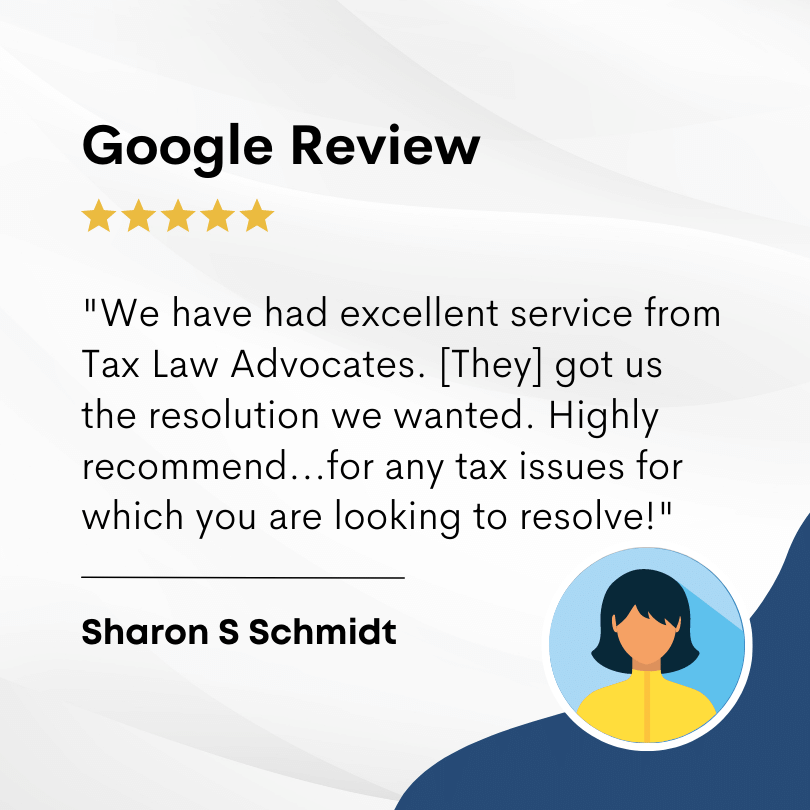The IRS Hardship Program provides valuable relief options for taxpayers facing financial hardships and struggling to meet their tax obligations. At Tax Law Advocates, we understand the difficulties that individuals and businesses encounter during challenging times. In this comprehensive guide, we will explore the details of the IRS Hardship Program, the relief options it offers, eligibility requirements, and how Tax Law Advocates can assist you in navigating this process to find the relief you need.
What Is The IRS Hardship Program?
The IRS Hardship Program, also known as the Currently Not Collectible (CNC) status, is designed to provide temporary relief to taxpayers who are experiencing severe financial hardships and are unable to pay their tax debts. This program allows eligible individuals to postpone their tax payments or request a refund until their financial situation improves. The IRS considers factors such as income, expenses, assets, and liabilities when determining eligibility.
Relief Options Under the IRS Hardship Program for IRS Financial Hardship
IRS financial hardship refers to a situation where an individual or a business is experiencing significant financial difficulties that make it challenging to meet their tax obligations. In such circumstances, the IRS offers various options to help taxpayers address their financial hardships and manage their tax liabilities effectively. The IRS offers several relief options under the Hardship Program, including:
Currently Not Collectible (CNC) Status: This status allows taxpayers to temporarily stop making payments on their tax debts if they can demonstrate that paying the debt would cause undue financial hardship.
Installment Agreement: For taxpayers who can afford to make partial payments, an installment agreement can be established to pay off the tax debt over time.
Offer in Compromise (OIC): In certain cases, taxpayers may qualify for an OIC, which allows them to settle their tax debt for less than the full amount owed.
Innocent Spouse Relief: This relief option is available to taxpayers who have tax liabilities resulting from their spouse’s or ex-spouse’s actions. It provides protection from being held responsible for their spouse’s tax obligations.
Qualification Requirements For IRS Hardship Relief
To be eligible for the IRS Hardship Program, taxpayers must demonstrate that they are facing significant financial hardship and are unable to pay their tax debts. Taxpayers must provide documentation and evidence supporting their financial situation. Specified taxpayers can complete Form 8944 to complete their waiver request.
IRS Hardship Refund Request – Form 8944
An IRS Hardship Refund Request, also known as an IRS Economic Hardship Refund Request, is a formal request made to the Internal Revenue Service (IRS) for the return of funds that were withheld from a taxpayer’s income to satisfy past due tax debts. This request is typically submitted by individuals who are facing significant financial hardship and are struggling to meet their basic living expenses due to the IRS withholding funds.
To initiate an IRS Hardship Refund Request, the taxpayer must demonstrate to the IRS that returning the withheld funds is necessary to cover essential living expenses such as housing, food, medical costs, or transportation. The request should include detailed documentation supporting the financial hardship faced by the taxpayer, including proof of income, expenses, debts, and any other relevant financial information.
If the IRS approves the Hardship Refund Request, they may refund a portion or all of the withheld funds to the taxpayer to alleviate the financial burden caused by the tax debt. It’s important to note that the IRS carefully evaluates each request on a case-by-case basis, considering the individual circumstances and financial situation of the taxpayer before making a decision.
Overall, an IRS Hardship Refund Request serves as a mechanism for taxpayers experiencing severe financial hardship to seek relief from the burden of withheld funds and address immediate financial needs.
IRS Hardship Program FAQs
What is the IRS Hardship Program?
Answer: The IRS Hardship Program, also known as the Currently Not Collectible (CNC) status, is a program that provides temporary relief to taxpayers who are experiencing financial hardship and cannot afford to pay their tax debt.
How does the IRS determine if I qualify for the Hardship Program?
Answer: The IRS evaluates your financial situation, including your income, expenses, and assets, to determine if you meet the eligibility criteria for the Hardship Program. Tax Law Advocates can assess your circumstances and help you present a compelling case to the IRS.
Can I apply for the Hardship Program on my own?
Answer: Yes, you can apply for the Hardship Program on your own. However, working with Tax Law Advocates can increase your chances of success, as we have extensive experience navigating the IRS process and advocating for taxpayers’ rights.
How long does the Hardship Program last?
Answer: The duration of the Hardship Program varies based on your financial circumstances. The IRS periodically reviews your financial situation to determine if you still meet the criteria for Currently Not Collectible status. Tax Law Advocates can help you understand the timeframes involved and guide you through the process.
Will the IRS continue to charge interest and penalties during the Hardship Program?
Answer: While you are in the Hardship Program, the IRS will continue to assess interest and penalties on your tax debt. However, by obtaining the Currently Not Collectible status, you can temporarily halt collection actions and gain relief from immediate payment obligations.
Can the IRS seize my assets while I am in the Hardship Program?
Answer: Generally, the IRS will not seize your assets while you are in the Hardship Program. However, it is essential to maintain compliance with the program’s requirements and promptly address any IRS communications. Tax Law Advocates can help you navigate the program to protect your assets.
Can I negotiate a reduced tax debt amount through the Hardship Program?
Answer: The Hardship Program does not directly negotiate a reduced tax debt amount. However, by demonstrating your financial hardship and inability to pay, you can effectively pause collection actions and gain relief from immediate payment obligations. Tax Law Advocates can explore other IRS relief programs to address your tax debt reduction needs.
Will the IRS continue to send me notices and letters?
Answer: While you are in the Hardship Program, the IRS may continue to send you notices and letters. It is crucial to communicate any changes in your circumstances or address any concerns with Tax Law Advocates, who can help you respond appropriately to IRS communications.
Can I have my tax refunds applied towards my outstanding tax debt while in the Hardship Program?
Answer: Yes, if you are in the Hardship Program, the IRS will typically apply any tax refunds you are entitled to towards your outstanding tax debt. Tax Law Advocates can help you understand the impact on your tax refunds and explore strategies to maximize your financial benefits.
Can I qualify for the Hardship Program if I am self-employed?
Answer: Yes, self-employed individuals can qualify for the Hardship Program if they meet the financial hardship criteria. Tax Law Advocates can evaluate your self-employment income and expenses to determine your eligibility and assist you in presenting a strong case to the IRS.
What documentation do I need to provide for the Hardship Program application?
Answer: The documentation required for the Hardship Program application varies based on your financial situation. Generally, you will need to provide income statements, expense records, and other relevant financial documents. Tax Law Advocates can guide you through the documentation process to ensure a comprehensive application.
Can the Hardship Program provide relief for both federal and state tax debt?
Answer: The Hardship Program specifically addresses federal tax debt. However, state tax authorities may have their own programs or options for individuals facing financial hardship. Tax Law Advocates can help you explore options for state tax debt relief and navigate the applicable programs.
Can the Hardship Program help with business-related tax debt?
Answer: The Hardship Program primarily focuses on individual tax debt. However, if your business tax debt is intertwined with your personal finances, Tax Law Advocates can assess your situation and provide guidance on how the Hardship Program or other relief options can be applied.
Can the IRS terminate the Hardship Program if my financial situation improves?
Answer: The IRS periodically reviews your financial situation to determine if you still meet the eligibility criteria for the Hardship Program. If your financial situation improves, the IRS may request updated financial information to reassess your eligibility. Tax Law Advocates can assist you in navigating these reviews and ensuring ongoing compliance.
Can I work with Tax Law Advocates to apply for the Hardship Program?
Answer: Yes, you can work with Tax Law Advocates to apply for the Hardship Program. Our experienced team understands the complexities of the program and can guide you through the application process, increasing your chances of obtaining relief from your tax debt.
How Tax Law Advocates Can Help
Navigating the IRS Hardship Program can be challenging, especially when dealing with complex financial and tax-related issues. Tax Law Advocates has a team of experienced professionals who specialize in assisting taxpayers with their hardship cases. Our services include:
Personalized Consultation: We offer a confidential consultation to evaluate your specific financial situation and determine the most suitable relief option under the IRS Hardship Program.
Documentation and Representation: Our team will gather the necessary documentation and represent you in all communications with the IRS. We will prepare and submit the required forms, ensuring accuracy and completeness.
Negotiation and Settlement: We will negotiate with the IRS on your behalf, aiming to secure the best possible outcome for your hardship case. Our goal is to help you achieve relief from your tax debt and provide you with financial stability.
The Benefits of Working with Tax Law Advocates
Choosing Tax Law Advocates as your trusted partner in navigating the IRS Hardship Program offers several advantages, including:
Experience and Expertise: With years of experience in tax resolution services, our team understands the intricacies of the IRS Hardship Program and can provide knowledgeable guidance tailored to your specific circumstances.
Personalized Attention: We take the time to understand your unique financial situation and develop a customized strategy to achieve the best possible outcome for your hardship case.
Professional Representation: Our skilled professionals will handle all communication and negotiations with the IRS, ensuring that your rights are protected and that your case is presented effectively.
Peace of Mind: By working with Tax Law Advocates, you can have peace of mind knowing that your IRS Hardship Program case is in capable hands. We will work diligently to help you find the relief you need and alleviate the burden of tax debt.
See if You Qualify for the IRS Hardship Program
The IRS Hardship Program offers valuable relief options for taxpayers facing financial difficulties. Whether you qualify for Currently Not Collectible status, an installment agreement, an Offer in Compromise, or innocent spouse relief, Tax Law Advocates is here to guide you through the process. Contact us today at 855.612.7777 for a confidential consultation and take the first step towards resolving your tax debt and finding the relief you deserve.
What You Need To Know About Form 8944
In the complex world of tax preparation, the IRS Form 8944, also known as the “Preparer e-file Hardship Waiver Request,” plays a pivotal role. This form is used by tax preparers who encounter hardships that prevent them from meeting the IRS’s electronic filing requirement.
What is IRS Form 8944?
The IRS mandates certain tax return preparers to file individual income tax returns electronically. However, in instances where this requirement poses an undue hardship, tax preparers can request an exemption through the IRS Form 8944.
What Do You Need to Complete IRS Form 8944?
Filling out Form 8944 involves providing comprehensive details about your tax preparation business and the specific hardship you’re encountering. Here’s what you need:
-
Your Business Information: This includes your name, Social Security Number (SSN) or Employer Identification Number (EIN), and business address.
-
Hardship Type: Indicate whether the hardship is administrative (e.g., lack of necessary software, inadequate internet access) or financial (costs of e-filing outweigh benefits).
-
Detailed Explanation: Describe the hardship in detail, explaining why it prevents you from e-filing, the steps you’ve taken to overcome it, and any relevant supporting documentation.
-
Signature: The form must be signed and dated by either the individual tax return preparer or a person authorized to represent the business if the preparer is a firm.
The Importance of IRS Form 8944
Submitting Form 8944 is essential for tax preparers facing challenges with the e-file mandate. It allows them to continue preparing tax returns without risking penalties for non-compliance with e-filing requirements. By accurately filling out and submitting this form, tax preparers can maintain compliance with IRS regulations while addressing their specific hardships.
Remember, dealing with IRS forms and regulations can be complex. It’s always advisable to seek professional help. At Tax Law Advocates, we’re here to assist you with all your IRS and state tax debt needs.






